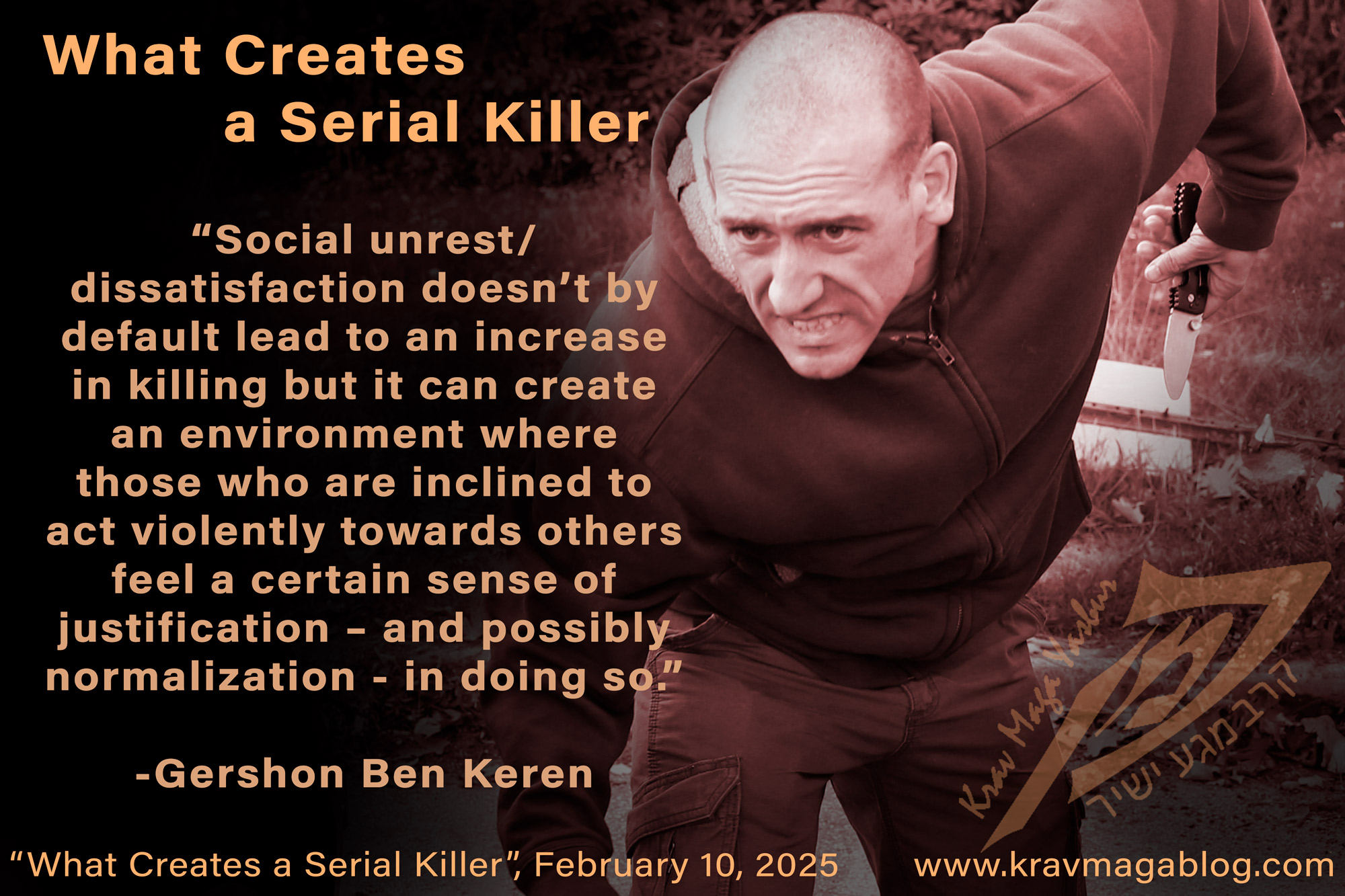Human beings have a natural aversion to killing each other – something that is common across all species i.e., a species that was intent on killing its members would soon be extinct. In nature, most killing occurs due to the need for food or to protect resources, however humans may kill for other reasons, such as matters of ego etc. However, killing for killing’s sake, is not a common human trait, and when we see it, it is not something we readily/easily understand. We may be fascinated by individuals such as Ted Bundy and Dennis Nilsen, but the reasons as to why they killed (Bundy confessed to thirty murders whilst Nilsen confessed to fifteen), remain somewhat elusive. Both offered reasons/explanations; Bundy blamed his killings on an addiction to porn, Nilsen on an undefined personality disorder and loneliness. Neither of these are satisfactory explanations and are hardly “universal” answers to the reasons and motives behind serial killing i.e., they appear to be specific to two particular killers. Whilst each serial killer is unique there must be shared experiences that lead people to engage in such acts of killing, and that there seems to be a temporal aspect suggests that there may be societal/sociological reasons behind them e.g., the US experienced its “golden era” of serial killings between 1970 and 2000, whilst South Africa experienced its in the 1990’s and early 2000’s. In this article I want to look at some of the changes that South Africa went through during this period which may have helped create the conditions that produced a wave of serial killers – this isn’t intended to absolve them of personal blame and responsibility but to recognize the environmental factors that may produce such killers.
South Africa’s first known/identified serial killer is Pierre Basson who killed nine people between 1903 and 1906. However, Basson’s motive is easy to identify, he murdered his victims in Claremont, Cape Town, in order to get their life insurance. Whilst the UK serial killer, Dr Harold Shipman was caught due to greed – he altered the will of one of his victims – it appears that none of the other individuals he murdered was for financial gain. Whilst we may be horrified at someone killing for money we can understand it; it’s an identifiable motive. We can also understand killings that may take place during the execution of another crime e.g., in 2007, Sibusiso Duma, killed seven people – on different occasions – whilst engaged in robbery. However, killing for killing’s sake is much harder to understand/make sense of. In April 1994, Nelson Mandela was elected as the first black president of South Africa. A year earlier Mandela had gone on TV and Radio, making a call for “calm”, which is credited with stopping/preventing the country descending into civil war; a white supremacist had assassinated Chris Hani, a popular figure in the anti-apartheid movement, and the country was simmering politically and emotionally. Mandela’s election heralded the end of apartheid and that held the promise of an increase in opportunity and promise for South Africa’s black population. However, thirty years on the economic hopes that many people had have not been realized, and there certainly wasn’t an immediate change in the fortunes of many after Mandela was elected.
What did happen was an increase in the number of serial killers; mainly black, who mainly targeted black communities etc. This is understandable; a black person is less identifiable in a black community than they would be in a white one. If you are going to be killing multiple people, staying as anonymous as possible is a must. At the heart of all violence is the need for power and control. Even burglars (non-violent offenders), who generally prefer not to interact with the homeowners of the houses they target, will talk about the thrill and enjoyment of the power and control they have when they are in someone else’s home, without them being there. There is a reason why those who are the victims of burglary talk more about the sense of violation they’ve experienced after their house was broken into, than the loss of goods i.e., they intuitively understand the emotional aspect of the offense, and the reward(s) it brings the offender. In the turmoil of the post-apartheid era there were individuals who believed that they would enjoy a greater sense of power and control over their lives and yet this didn’t happen. When we are denied something in one area, we may choose to seek it in another, especially if we see or are presented with an opportunity. Social unrest/dissatisfaction doesn’t by default lead to an increase in killing but it can create an environment when those who are inclined to act violently towards others feel a certain sense of justification – and possibly normalization - in doing so.
I remember a criminology professor of mine asking me what I thought of growing up in 1980’s Britain. After listing off various things and events, he said, “it was pretty shit, wasn’t it?” The US in the 1970’s is largely remembered as a period of inflation (high gas prices) and political upheaval (Watergate and the Vietnam war). The 1980’s saw the AIDS crisis, and the threat(s) of Nuclear War during the cold war period. Both decades which saw the rise of serial killings in both countries were times of uncertainty where many individuals felt an individual lack of personal power and control. It is impossible to say if the “Golden Era” of serial killings was the result of these things, however when comparing different countries’ periods of societal unrest, and the associated rise in serial killings it’s hard to put serial killing down to purely biological and psychological factors.
